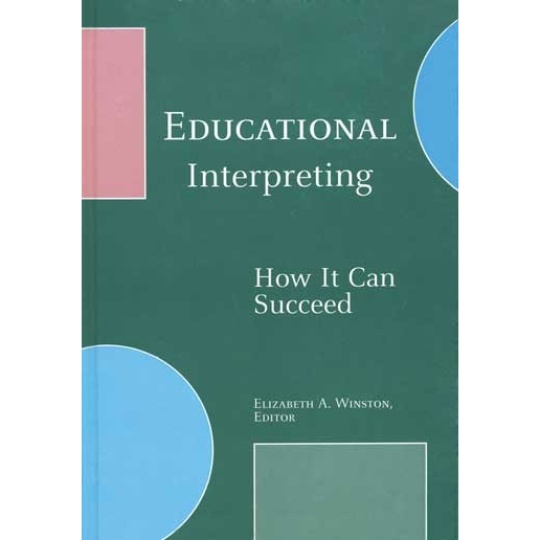Educational Interpreting


Educational Interpreting
SKU #B1052 IN STOCK
Retail Price: $80.00Save $20.00
$60.00
QTY
Lowest price, guaranteed
- Overview
- Additional Details
- Accessories
- Q&A
- Customer Reviews
- Manual
This incisive book explores the current state of educational interpreting-its strengths and weaknesses-and how it affects deaf students. The contributors, all renowned experts in their field, include former educational interpreters, teachers of deaf students, interpreter trainers and deaf recipients of interpreted educations.
Educational Interpreting presents the salient issues in three distinct sections. Part 1 focuses on deaf students-their perspectives on having interpreters in the classroom, the language myths that surround them, the accessibility of language and their cognition. Part 2 raises questions about the support and training that interpreters have in and from the school systems, the qualifications that many interpreters bring to an interpreted education and the accessibility of everyday classrooms for deaf students. Part 3 presents a few of the possible suggestions for addressing the concerns of interpreted educations, and focuses primarily on the interpreter.
The contributors discuss the need to (1) define the core knowledge and skills interpreters must have and (2) develop standards of practice and assessment. They also stress that interpreters cannot effect the necessary changes along; unless and until administrators, parents, teachers and students recognize the inherent issues of access to education through mediation, little will change for deaf students. [Elizabeth A. Winston; (2005) 224 pages; hard cover]
| Feature | Details | |
|---|---|---|
| Mfg part # | 1563683091 | |
| UPC | 9781563683091 | |
| Weight (lbs) | 1.44 | |
| Author(s) | Elizabeth A. Winston | |
| Deaf Author | No | |
| Publisher | Gallaudet University Press | |
| Publication Date | 2005 | |
| Media Type(s) Book CD-ROM DVD | Yes No No | |
| Cover Type | Hard Cover | |
| Pages | 224 | |
| Voice Over / Audio | No | |
| Captions | No | |
| Age(s) Baby Child Teen Adult | No No No Yes | |
| Earn CEUs | No | |
| ISBN | 9781563683091 |
Customer Q&A
Get help from Diglo and other customers who purchased this. Ask a new question.
Ask a New Question
To pose a question, please log into your Diglo account or create a new account.
Customer Reviews
Real people with real opinions. Post your own review.
Post Your Own Review
To leave a review, please log into your Diglo account or create a new account.
Manual:
Back to top

